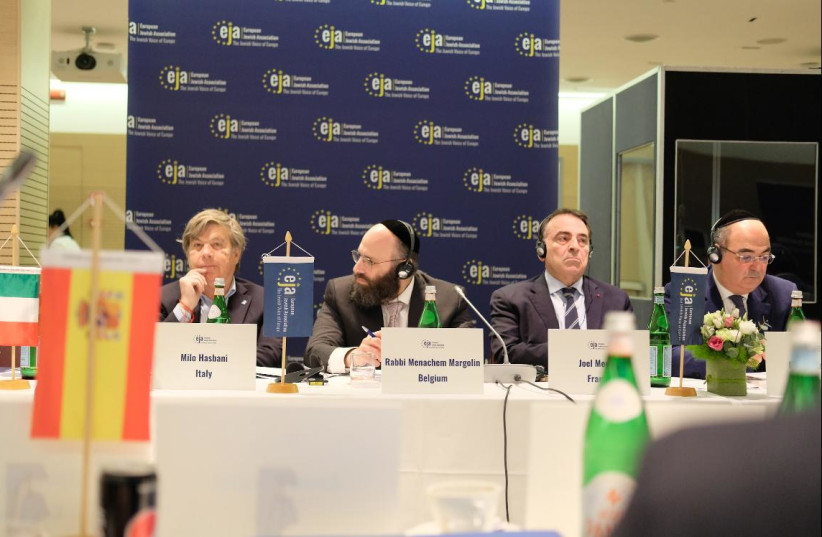The European Jewish Association's (EJA) Council of European Jewish Leaders convened in Rome on Tuesday to discuss the challenges Jewish communities face amid the rise in antisemitism in Europe.
“The test of any government commitments in standing up for European Jewry is right now. Our council is clear, based on the evidence so far, European governments are failing this test," said EJA chairman Rabbi Menachem Margolin.
The 40 heads of Jewish Communities who gathered in Rome reiterate this, stating too few governments have actually acted on their promise to eradicate antisemitism and protect the Jewish communities, according to the EJA.
Part of the issue, according to the leaders, is that governments do not comply with already existing anti-hate and anti-BDS legislature, nor do they uphold the International Holocaust Remembrance Alliance's (IHRA) principles on antisemitism, despite being signatories.

The inactivity of governments in light of the increase in antisemitic discourse and anti-Israel protests prompted the Dutch Jewish community leader to say, “The laws and definition are not worth the paper they are printed on right now," the EJA said.
Leaders decide on action plan
The EJA stated the leaders decided on an 18-point plan of action, which included, among others, increasing communal safety and protection, encouraging major institutions and sports organizations to fight antisemitism, and banning the sale of Nazi memorabilia.
Concluding the meeting, Joel Mergui, the President of the EJA’s Council of European Jewish Leaders, said, "The Jewish leaders are clear, we refuse to live in fear, we are strong, and we will overcome this current tide of hate.
"It is unacceptable that calls for genocide and ethnic cleansing as typified by 'From the river to the Sea,' and calls for 'intifada' are now commonplace, along with nazi symbols and outright antisemitic imagery in regular use.
"This is a major cause of antisemitism, and authorities across the continent must do more to stick to their commitments that they have repeatedly given to protect Jews and fight antisemitism.”
Rabbi Margolin added, "As Jewish leaders, it is our duty to protect our communities. The message from community leaders on the Council is clear: the EU and governments must translate their nice words on ensuring the safety of Jewish communities into meaningful actions."
The EJA is based in Brussels, and represents hundreds of Jewish communities across Europe. It seeks to share insights between Jewish leaders and advocate for policy that betters Jewish life.
A report published last month by the Diaspora Ministry, the World Zionist Organization, and the Jewish Agency illustrates the extent of the rise in antisemitism in Europe. According to the report, 2023 saw a 33% increase in violent antisemitic attacks worldwide, with almost half being related to the Israel-Hamas war. Figures showed that 16% of these attacks occurred in Britain, 9% in Germany, and 6% in France.
Furthermore, there was a 235% increase in antisemitic incidents between the months of October and December, with 35% of these taking place in Europe.
